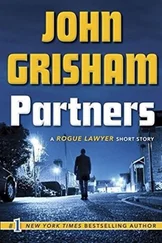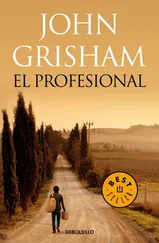Footsteps awakened her. At 3:00 p.m., like clockwork, the postman rumbled across her creaky porch and left her mail in the small box next to her front door. She waited a moment until he was gone, then retrieved the daily delivery, always a dismal collection of junk and bills. She flung the junk onto a coffee table and opened a letter from UNC. It was from the chair of the English department and, despite pleasant and verbose wordage, informed her, officially, that her position was gone. She had been a “valuable asset” to the staff, a “gifted teacher” who had been “admired by her colleagues” and “adored by her students,” and so on. The “entire department” wanted her to stay and viewed her as a “great addition,” but, sadly, there was simply no room in the budget. He offered her his best wishes and left the door open with the slight hope of “another position” should next year’s appropriation “return to normal levels of funding.”
Most of the letter was true. The chairman had been an ally, at times even a mentor, and Mercer had managed to survive the minefield of academia by keeping her mouth shut and avoiding, as much as possible, the tenured faculty.
But she was a writer, not a teacher, and it was time to move on. To where, she wasn’t certain, but after three years in the classroom she longed for the freedom of facing each day with nothing to do but write her novels and stories.
The second envelope contained her credit card statement. It showed a balance that reflected her frugal lifestyle and daily efforts to cut all corners. This allowed her to pay off each monthly balance and avoid the usurious rates the bank was eager to heap onto the carryovers. Her salary barely covered these balances, along with rent, auto insurance, auto repairs, and a bare-bones health insurance policy, one that she considered dropping each month when she wrote the check. She would have been financially stable, and with a little spare cash to buy a better wardrobe and perhaps have some fun, but for the contents in the third envelope.
It was from the National Student Loan Corporation, a wretched outfit that had been hounding her for the past eight years. Her father had managed to cover the first year of her private education at Sewanee, but his sudden bankruptcy and emotional crack-up had left her high and dry. Mercer had managed to squeak through her last three years with student loans, grants, jobs, and a modest inheritance from Tessa’s estate. She used the small advances from October Rain and The Music of Waves to pay down the interest on her student loans but hardly touched the principal.
Between jobs, she had refinanced and restructured her loans, and with each new scheme the horrendous balances grew even as she worked two and three jobs to stay current. The truth was, and she had told no one the truth, she found it impossible to express herself creatively while straining under a mountain of debt. Each morning, each blank page held not the promise of another chapter in a great novel, but rather another lame effort to produce something that might satisfy her creditors.
She had even talked to a lawyer friend about bankruptcy, only to learn that the banks and student loan companies had convinced Congress that such debts should be given special protection and not exempted. She remembered him saying, “Hell, even gamblers can go bankrupt and walk away.”
Did her stalkers know about her student debt? It was all private, right? But something told her that professionals could dig deep enough to find almost anything. She had read horror stories of even the most sensitive medical records being leaked to the wrong people. And credit card companies were notorious for selling information about their customers. Was anything really buried and safe?
She picked up the junk mail, tossed it in the wastebasket, filed away the final letter from UNC, and placed the two bills in a rack by the toaster. She made another cup of tea and was about to stick her nose in a novel when her cell phone buzzed.
Elaine was back.
She began with “Look, I’m very sorry about lunch. I didn’t intend to ambush you, but there was no other way to start the conversation. What was I supposed to do? Grab you on the campus and spill my guts?”
Mercer closed her eyes and leaned on a kitchen counter. “It’s all right. I’m fine. It was just so unexpected, you know?”
“I know, I know, and I’m very sorry. Look, Mercer, I’m in town until tomorrow morning, when I fly back to Washington. I’d love to finish our conversation over dinner.”
“No thanks. You’ve got the wrong person for this.”
“Mercer, we have the perfect person, and, frankly, there is no one else. Please give me the time to explain everything. You didn’t hear it all, and as I said, we are in a very tough position right now. We’re trying to save the manuscripts before they’re either damaged or, worse, sold piecemeal to foreign collectors and lost for good. Please, one more chance.”
Mercer could not deny, to herself anyway, that the money was an issue. A really big issue. She wavered for a second and said, “So what’s the rest of the story?”
“It will take some time. I have a car and a driver and I’ll pick you up at seven. I don’t know the town but I’ve heard that the best restaurant is a place called The Lantern. Have you been there?”
Mercer knew the place but couldn’t afford it. “You know where I live?” she asked, and was immediately embarrassed by how innocent she sounded.
“Oh sure. I’ll see you at seven.”
The car was, of course, a black sedan and looked thoroughly suspicious in her part of town. She met it at the drive and quickly hopped into the rear seat with Elaine. As it drove away, Mercer, sitting low, glanced around and saw no one looking. Why did she care? Her lease was up in three weeks and she would be leaving for good. Her shaky exit plan included a temporary stay in the garage apartment of an old girlfriend in Charleston.
Elaine, now dressed casually in jeans, a navy blazer, and expensive pumps, smothered her with a smile and said, “One of my colleagues went to school here and talks of nothing else, especially during basketball season.”
“They are indeed rabid, but it’s not my thing, not my school.”
“Did you enjoy your time here?”
They were on Franklin Street, moving slowly through the historic district, passing lovely homes with manicured lawns, then into Greek territory, where the homes had been converted to sprawling sorority and fraternity houses. The rain was gone and porches and yards were brimming with students drinking beer and listening to music.
“It was okay,” Mercer said without a hint of nostalgia. “But I’m not cut out for life in academia. The more I taught the more I wanted to write.”
“You said in an interview with the campus paper that you hoped to finish the novel while in Chapel Hill. Any progress?”
“How did you find that? It was three years ago, when I first arrived.”
Elaine smiled and looked out a window. “We haven’t missed much.” She was calm and relaxed, and she spoke in a deep voice that exuded confidence. She and her mysterious company were holding all the cards. Mercer wondered how many of these clandestine missions Elaine had put together and directed during her career. Surely she had faced foes far more complicated and dangerous than a small-town book dealer.
The Lantern was on Franklin, a few blocks past the hub of student activity. The driver dropped them off at the front door and they went inside, where the cozy dining room was almost empty. Their table was near the window, with the sidewalk and street just a few feet away. In the past three years, Mercer had read many rave reviews of the place in local magazines. The awards were piling up. Mercer had scanned the menu online and was starving again. A waitress greeted them warmly and poured tap water from a pitcher.
Читать дальше











